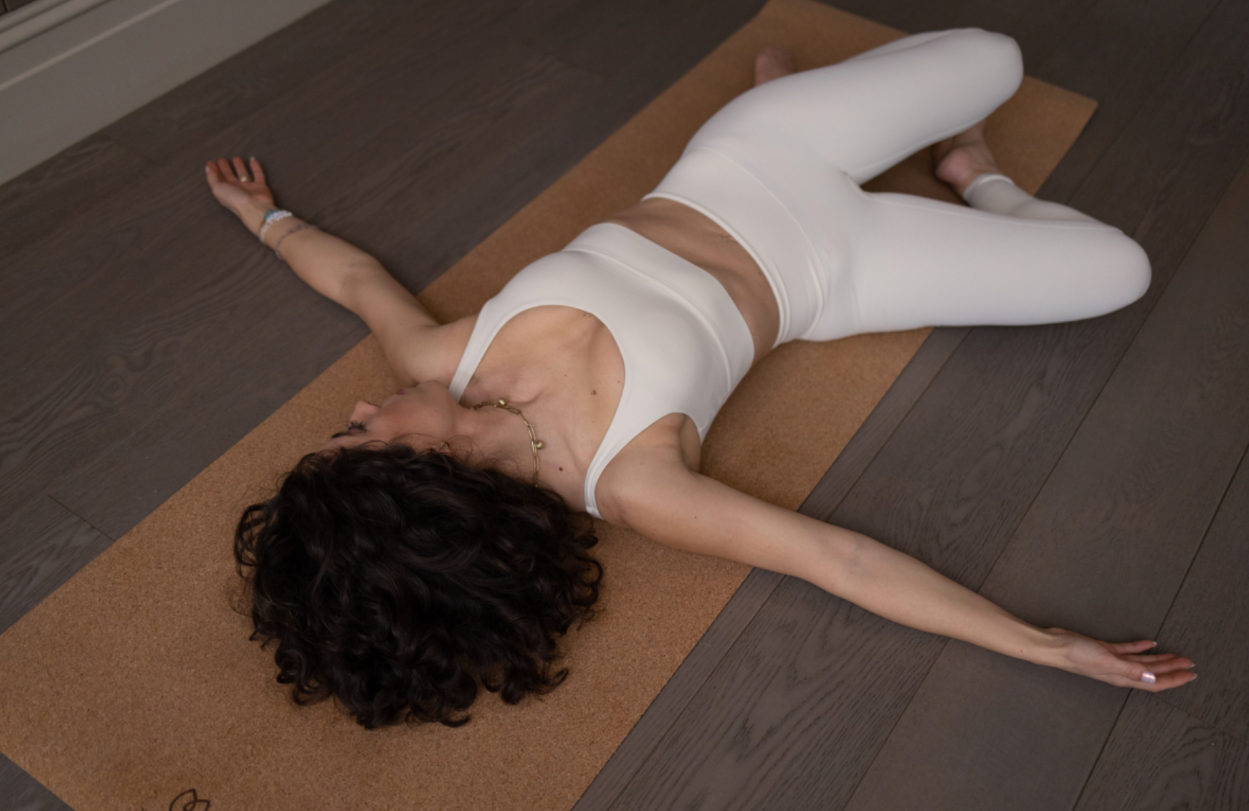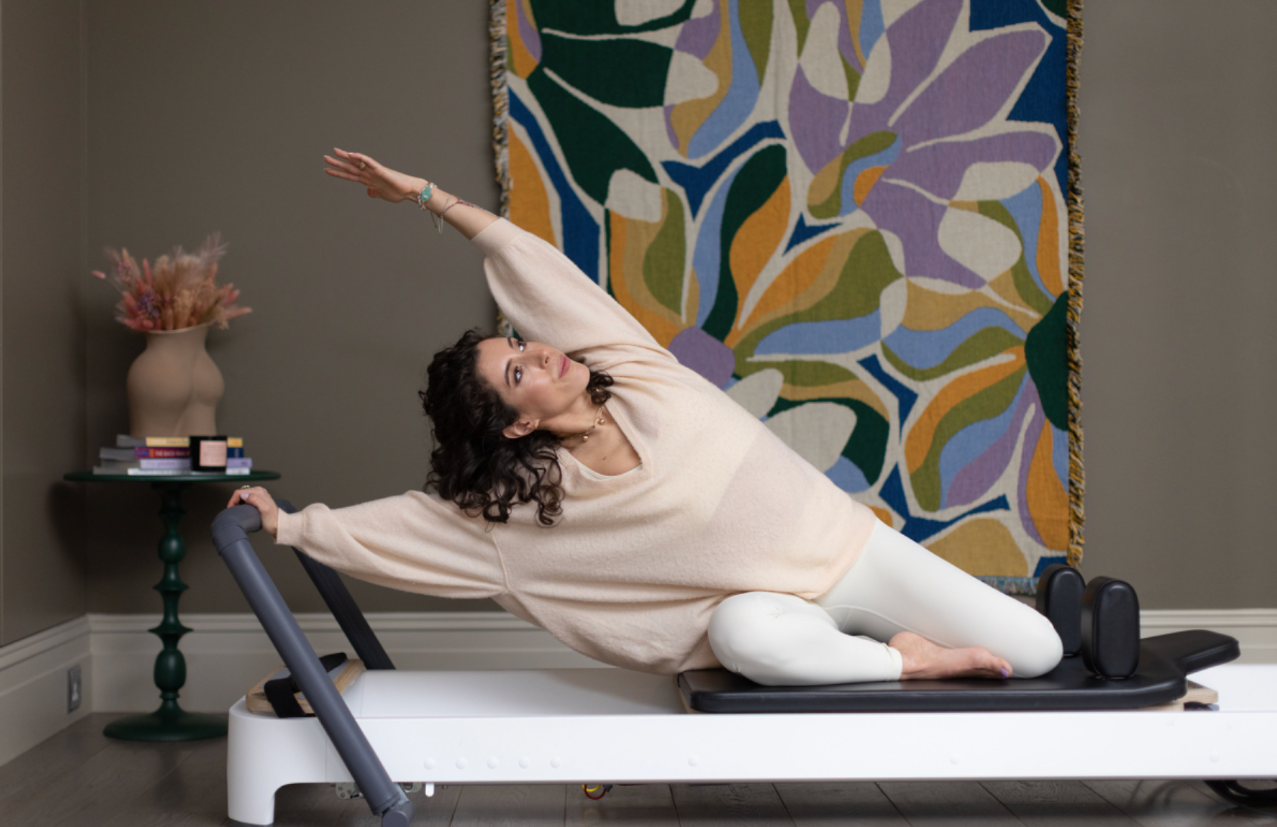Rebecca’s Three Favourite Pilates Moves…

1. Dart because it’s anti ageing for your spine. In the dart move you are lying face down on the floor in prone and moving your head, neck & upper back away from the floor which strengthens your spine muscles which essentially keeps You upright! This move counteracts our modern daily lives of sitting hunched over our desks or phones.
2. Side lying arm opening for the ultimate feel good move. You lie on your side for this one with your arms outstretched and then open up and reach behind you. Again as we spend so much of our days rounded forward this move will literally unravel your spine.
3. Table top arm and leg raise for full body integration. This one move can work the entire body! By being in all fours and lifting your opposite arm and leg off the floor your shoulders are switched on, your abs are pulling up to stop your back from arching, your glutes are working, your shoulders are mobilising. From here you can play with spine moves and different arm and leg variations so it is so versatile to layer!
The Top Three Mistakes People Make…
While there are lots of potential mistakes I see people make, most can be linked to three things: form, breathing, and core engagement.
1. Core Engagement:
Many people struggle with properly engaging their core, often due to not understanding what the core actually is. Most people think that the core is only the abdominal muscles, but in reality, it’s a system of muscles working together. Think of your core as a cylinder: abdominal muscles in front, spinal muscles in back, pelvic floor at the bottom, and diaphragm at the top to simplify it. Developing a strong core requires engaging all these components, not just the abs, and certainly not through crunches alone!
2. Breathing Technique:
Correct breathing is crucial in Pilates and frequently overlooked. Proper technique involves lateral breathing and engaging your abdominals with each exhale. A helpful cue is to imagine drawing your navel towards your spine while simultaneously sending your lowest rib towards your pelvis. Mastering your breath is key to core engagement, safe movement, maintaining the right movement speed, and reaping the mindfulness benefits of the practice.
3. Form and Stability:
Understanding which parts of your body should stay still and which should be moving is essential for proper form. Most Pilates exercises are performed with a neutral pelvis, meaning in your practice you should be stabilising certain areas while moving others. For instance, in a four-point kneeling position lifting your leg to tabletop, your torso and spine should remain still while only your hip joint moves. A common mistake is allowing unnecessary movement, such as arching the back into a “banana shape” during the leg lift, bending the elbows or tipping the head back!
Once you understand your form, core engagement and breathing most of the mistakes are fixed!

Credit: Rebecca Dadoun, Pilates Instructor & Founder of Pilates Prescription



